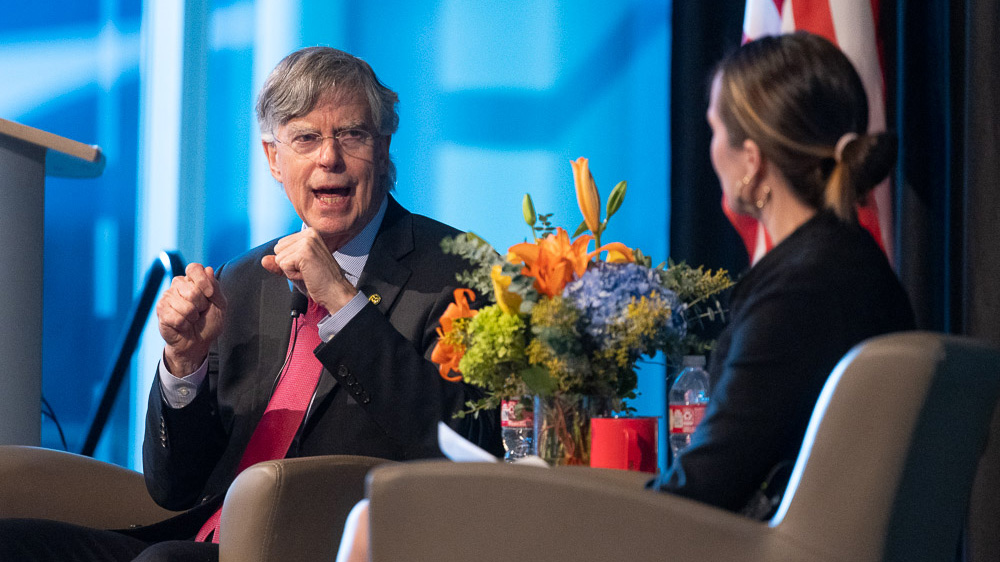
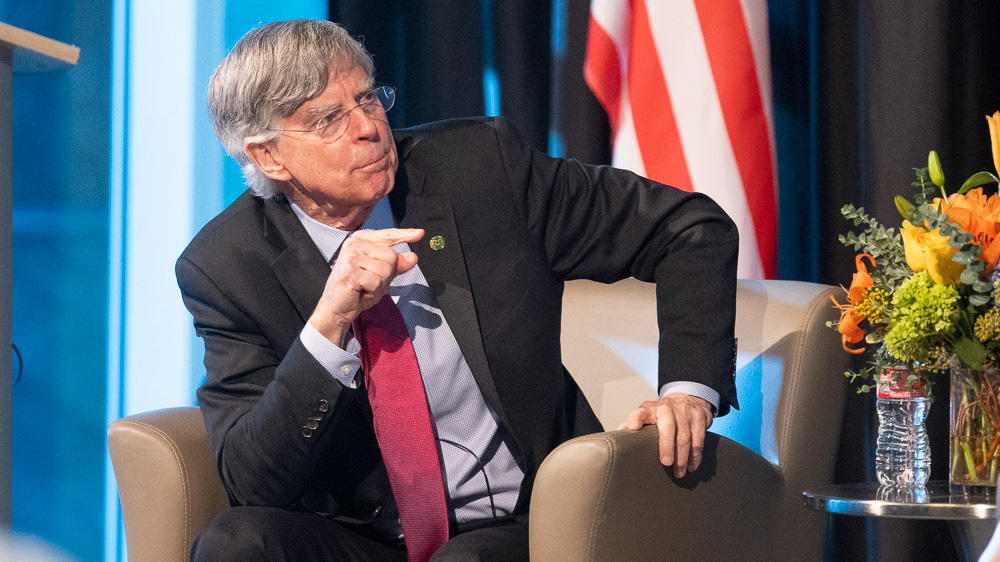
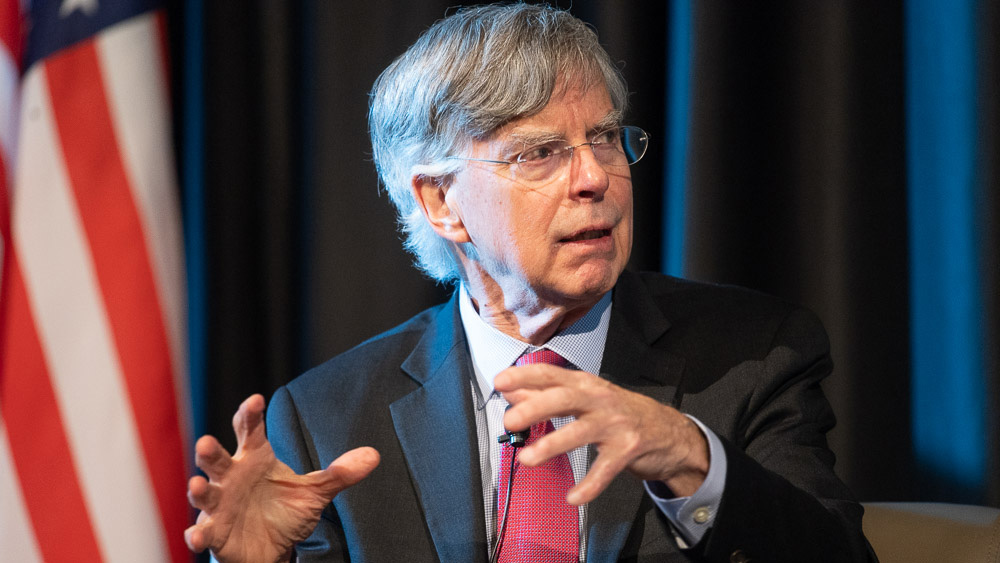
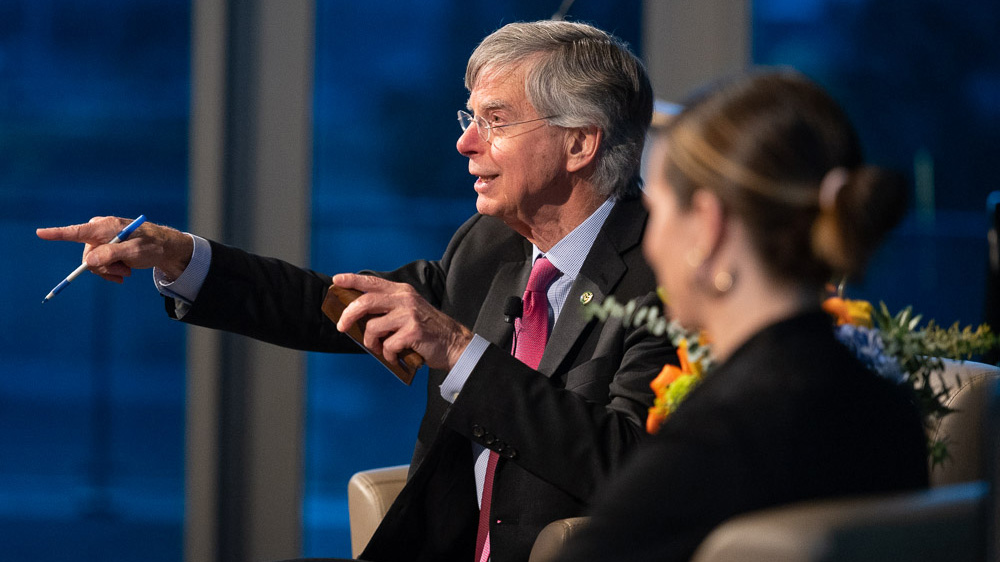
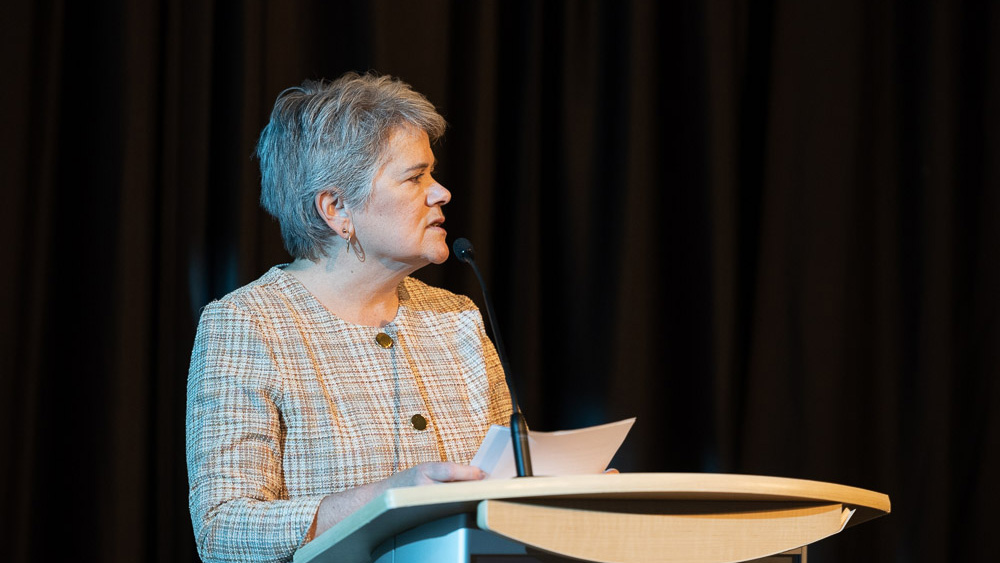
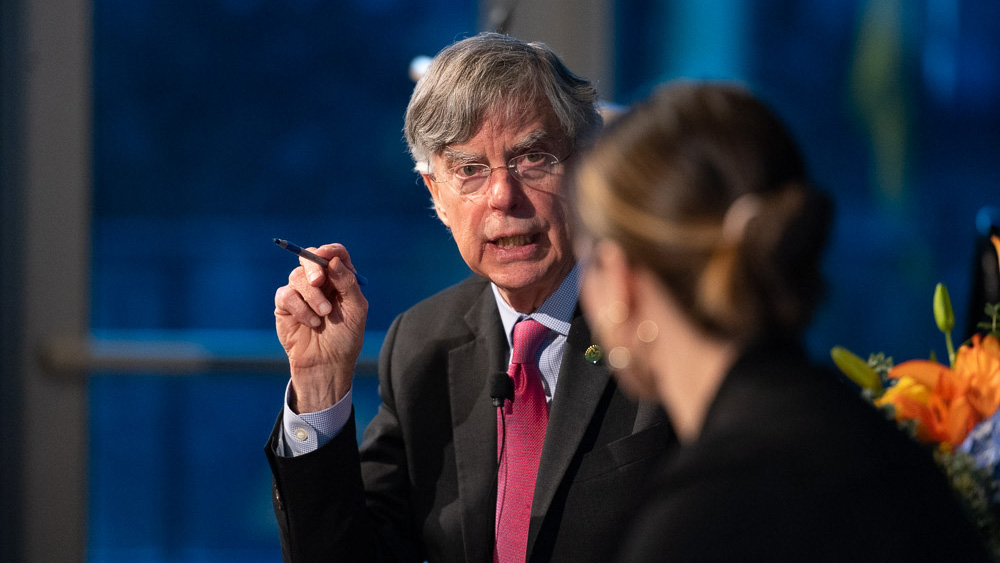
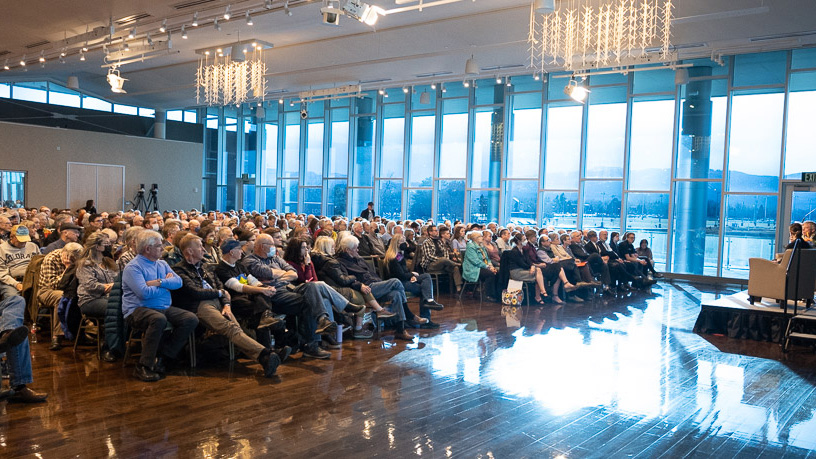
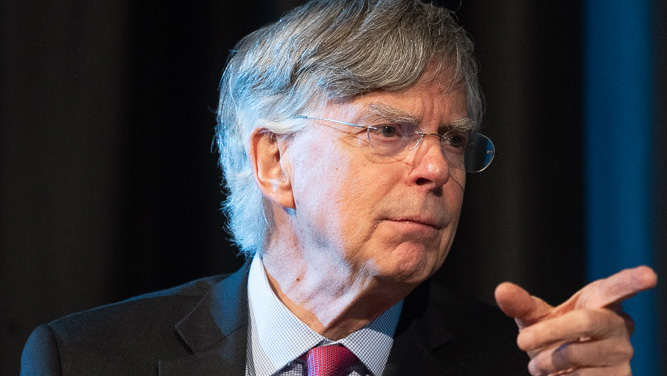
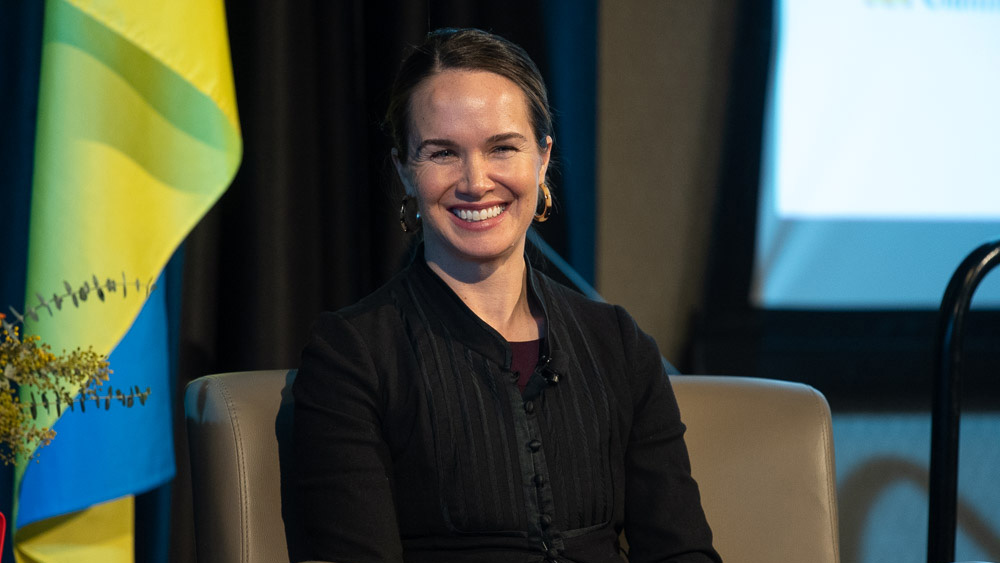
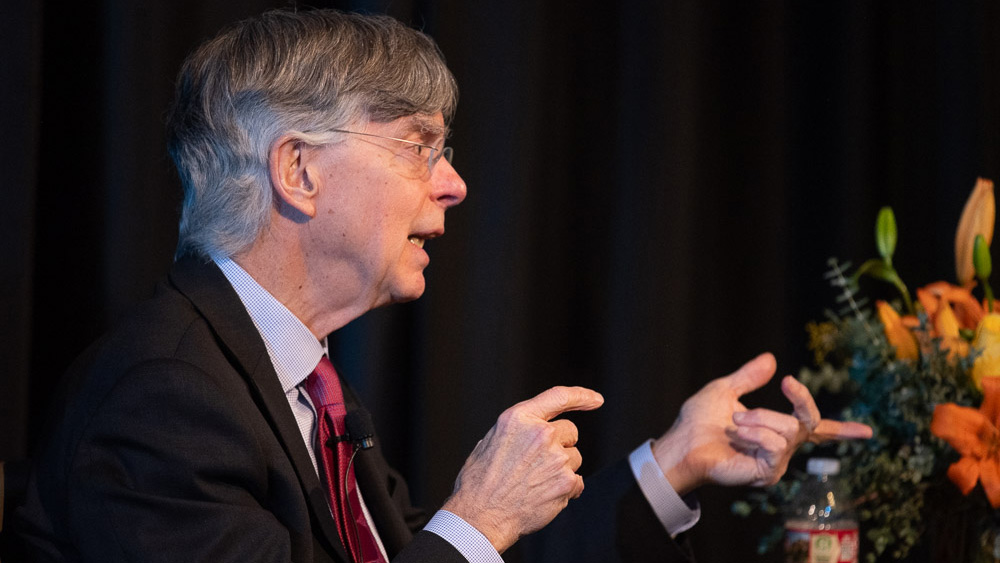
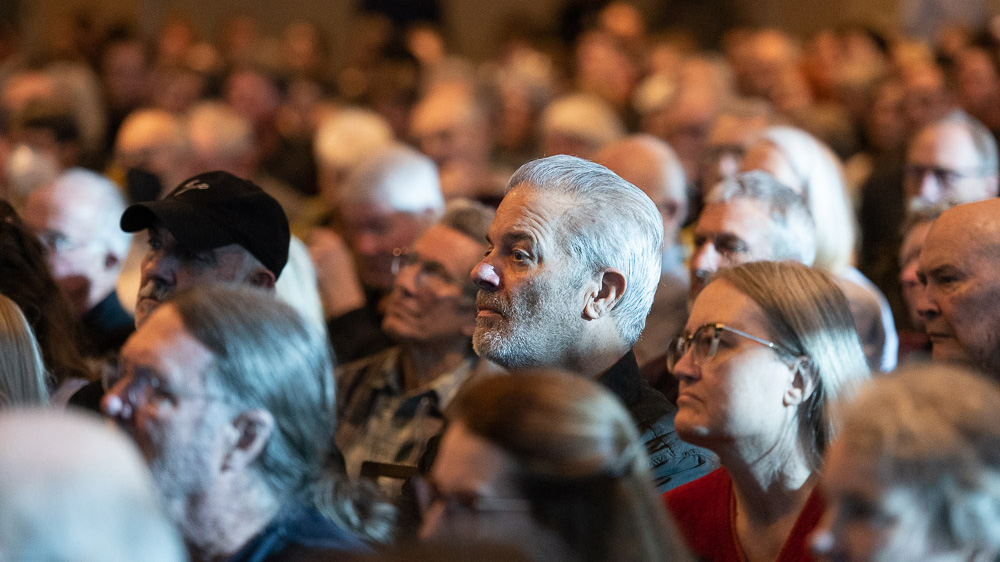
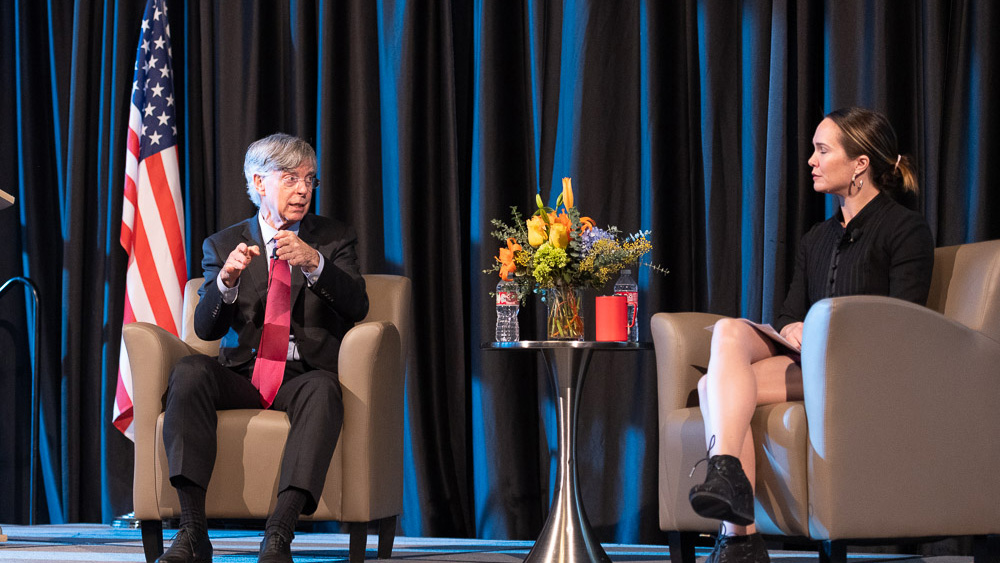
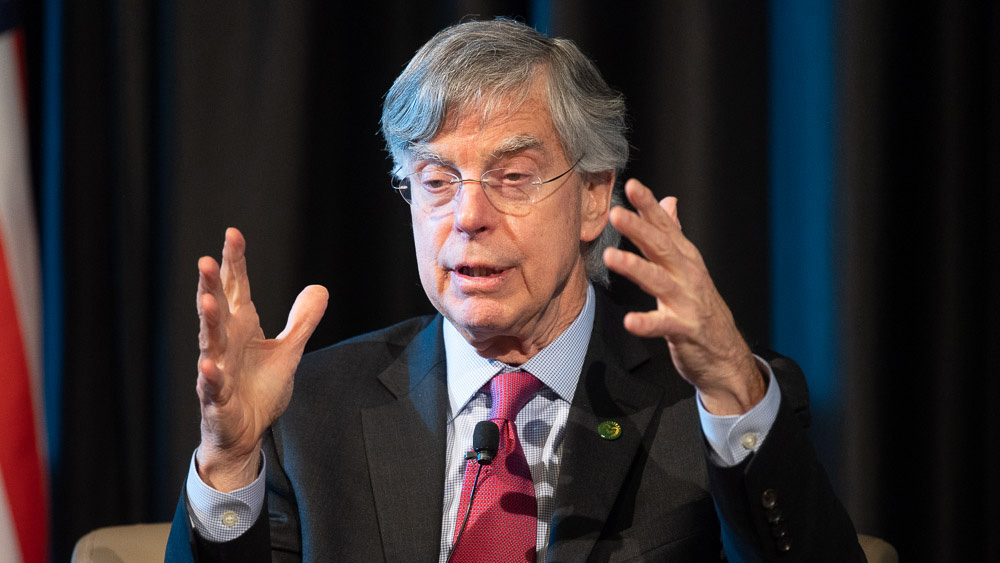
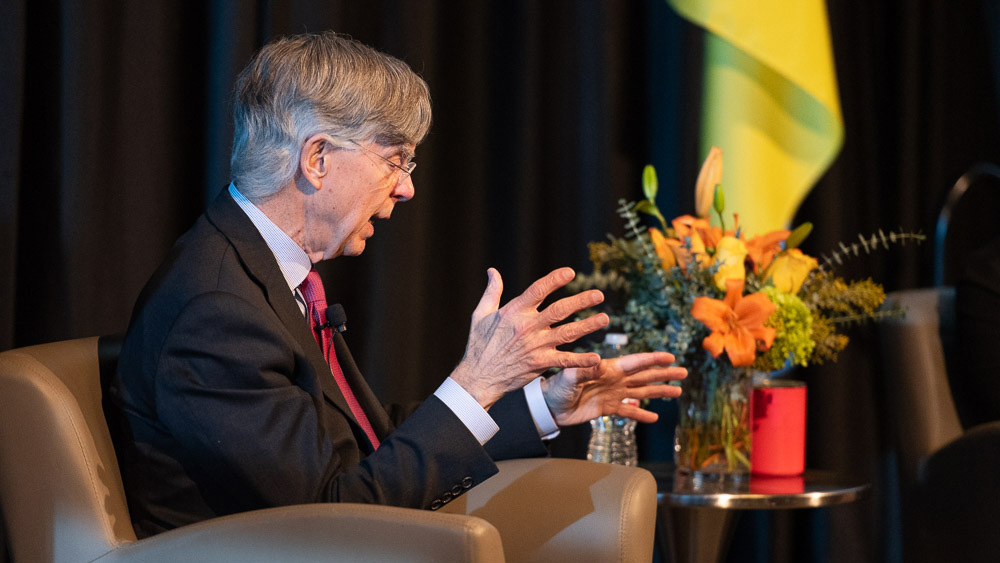
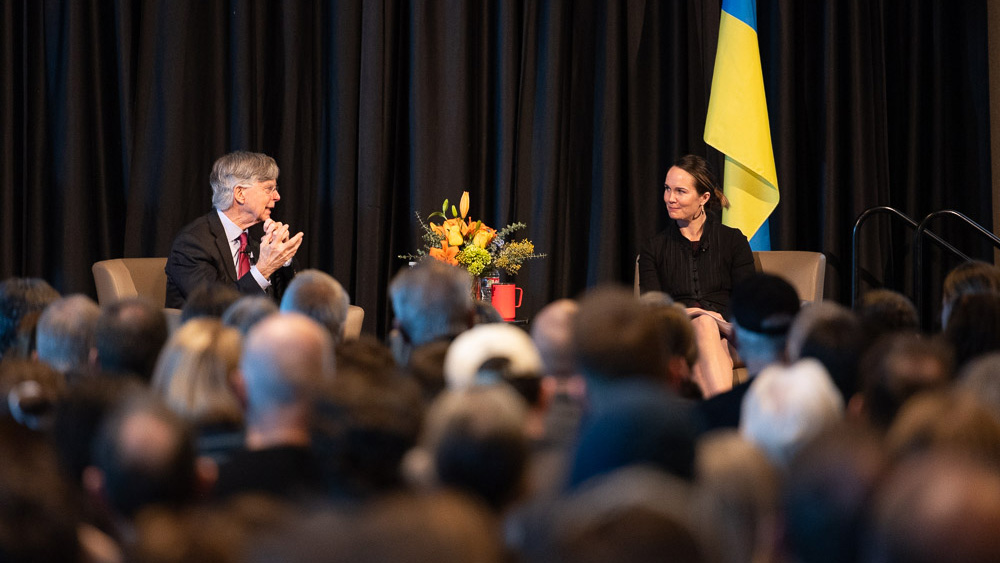
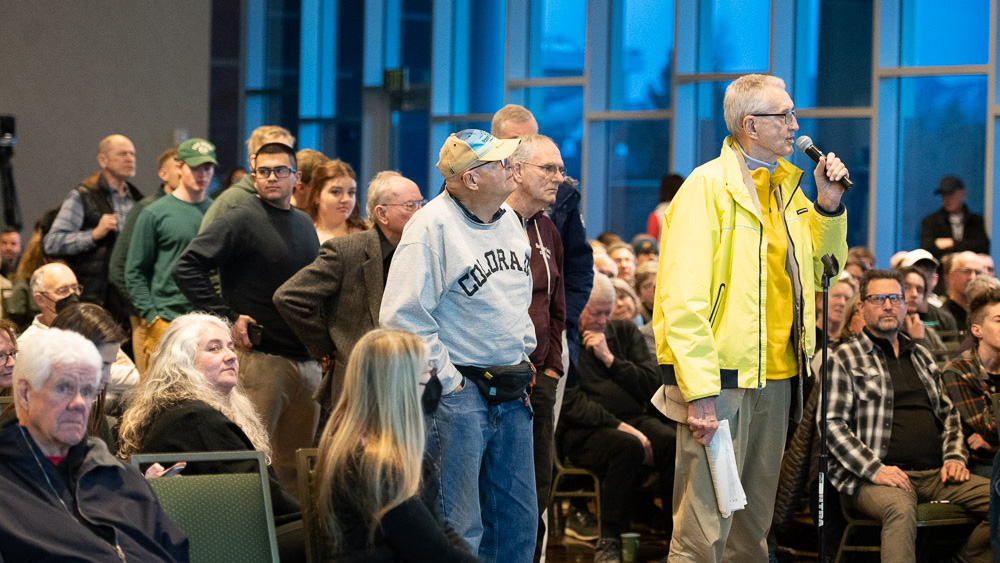
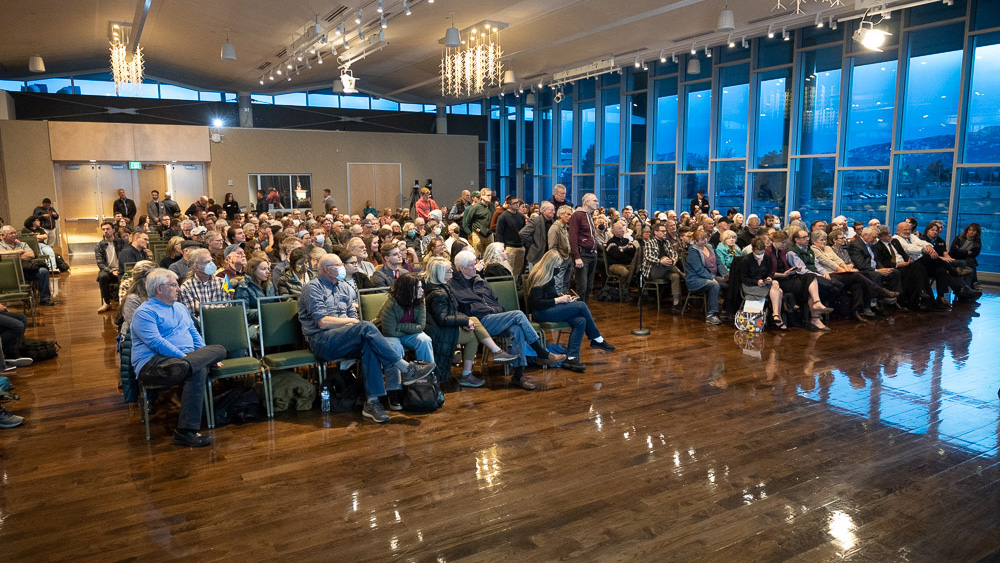
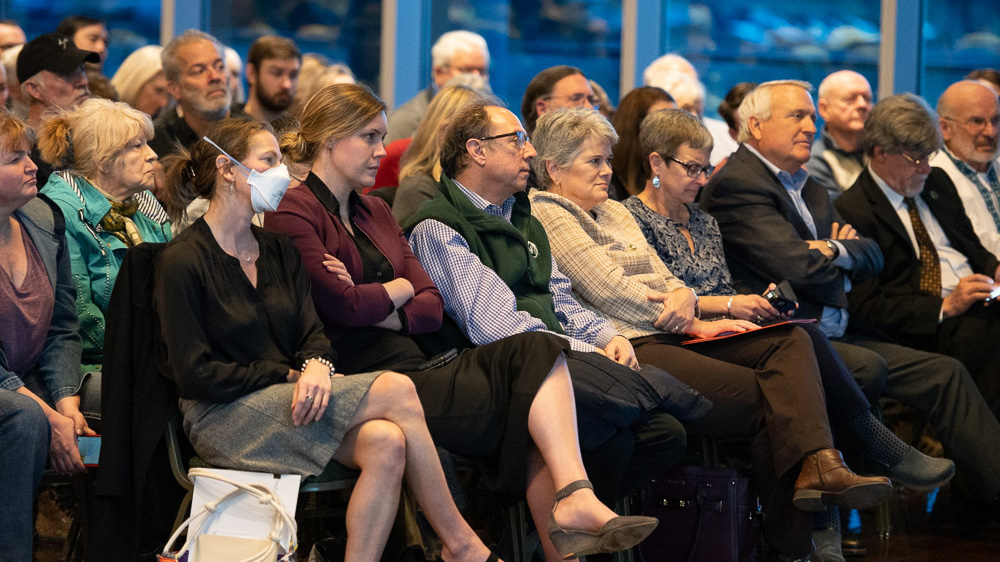
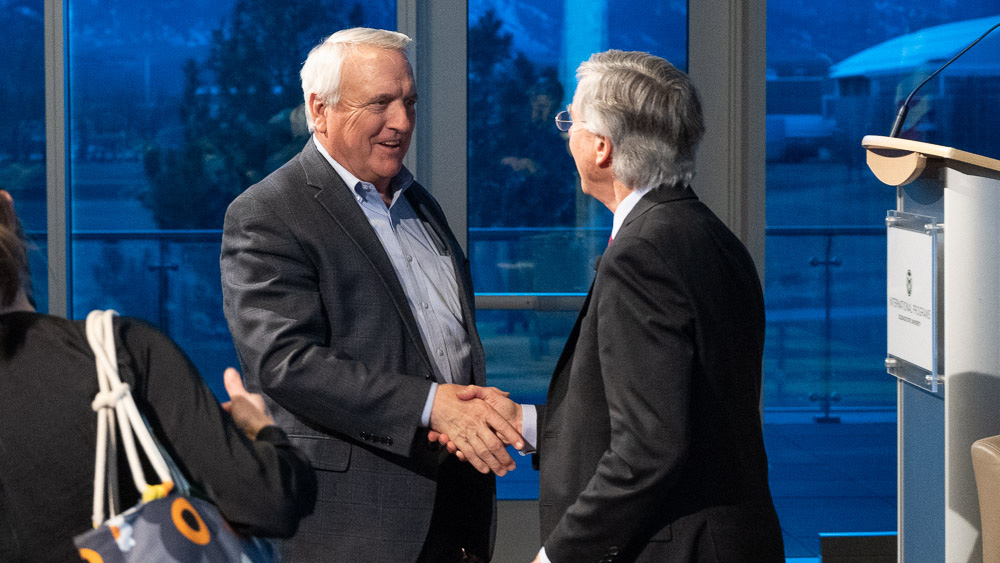
William Taylor, a U.S. ambassador to Ukraine with decades of public service, was the keynote speaker for the 2023 International Symposium at Colorado State University. The discussion was moderated by KUNC Senior Editor and Reporter Leigh Paterson. (Photos | John Eisele, CSU Photography)
There’s one specific image that comes to Ambassador William Taylor’s mind whenever he thinks of the war in Ukraine. The photo came to him from a friend, and it shows her young daughter looking out over the eerily dark cityscape of Kyiv after the Russian invasion knocked out electricity in the heart of winter.
“Since they were without power, they couldn’t use their building’s elevator and had to walk up and down 17 flights of stairs to get water,” Taylor said. “Meanwhile, my friend’s husband was away on the front lines of the war.”
Taylor shared this account as well as scenarios on how the war could end during a standing room-only address at Colorado State University’s Lory Student Center Tuesday. He was the keynote speaker for the fourth annual International Symposium, a three-day event that brings speakers from the CSU community and beyond to discuss issues with global relevance.
Taylor is now the vice president for Russia and Europe at the U.S. Institute of Peace, a nonpartisan entity dedicated to the nonviolent prevention and mitigation of deadly conflict abroad. In addition to serving as the ambassador to Ukraine from 2006 to 2009, he has overseen U.S. assistance to Egypt, Tunisia, Libya and Syria during the Arab Spring, and served in Kabul in 2002 and Baghdad in 2004. Most recently, he served as charge d’affaires at the U.S. embassy in Kyiv in 2019.
By sharing what he knows about Ukraine with people in Fort Collins, Taylor said he hopes to demonstrate the continued urgency of a war that remains a “slugfest” one year after Russia first crossed the nation’s borders.
“If the Ukranians win, it will send a message to the Russians and others – to people living everywhere – that might does not make right, and that big countries with strong militaries can’t simply invade their neighbors,” he said. “If that principle is not reestablished, it stands that no one is safe.”
How will the war in Ukraine end?
Taylor was in Ukraine in January 2022 – just weeks before the Russia invasion – and spent time talking to Ukrainian citizens and even President Volodymyr Zelenskyy about the looming threat of the tens of thousands of Russia troops that were beginning to gather at the border.
Nevertheless, he still wasn’t prepared for what happened on Feb. 24, when the Russian invasion that many had predicted finally happened.
“I was shocked, horrified, disappointed and angry,” Taylor said.
However, despite Russia’s advantage in numbers and military power, Ukraine has held on. Taylor said that’s in no large part because of the fact that people there know what they’re fighting for: their very existence.
“President Putin has been really clear about what his goal is: His goal is to make Ukraine part of Russia,” Taylor said. “He doesn’t think Ukraine’s really a nation, and he thinks people in this part of the world are really Russians. He thought by sending his troops they would be welcome, and it’s clear he was badly misinformed.”
The United States has now sent upwards of $75 billion in assistance to Ukraine since the war began, and Taylor said more support will be needed in the coming months. With the conflict at a stalemate, Taylor presented multiple scenarios for how the war as we know it could end.
The first involved Ukraine breaking through Russia’s lines, something Taylor said could have a devastating impact on morale and lead to Putin being more open to talks. The second is a scenario akin to North and South Korea, where even though there’s not a peace treaty, the 80% of Ukraine that is not under Russian control could continue to develop and even be admitted to the European Union or NATO down the line.
“The Ukranians in that scenario … they will continue to hope for the reunification of Ukraine,” Taylor said.